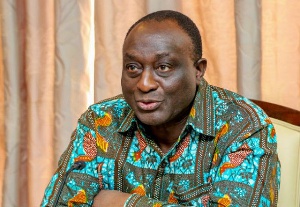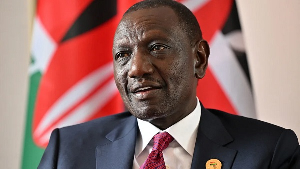Trade and Industry Minister Alan Kyerematen has cautioned Ghanaians not to expect an “overnight” construction of factories across the country as part of the government’s one-district-one-factory programme.
Speaking at the National Policy Summit in Tamale, he said the programme has a critical distinction in concepts requiring the participation and enthusiasm of business people to be successful.
“For us to appreciate, how long it takes for a factory to be established, my brothers and sisters, if you decided to build your house, a house to accommodate yourself, not a factory how long does it take? Sometimes one year, two years, three years,” he said.
He added: “Even if you have money and you go to a shop that you want to buy a factory, you will not be able to get the factory to buy from the shop; you will have to first have a document that tells you what kind of equipment and machinery, that alone can take probably another six months, for you to build the factory itself it may take another one, one and half year, so please we need a lot of patience.”
So far, government has received over 700 proposals from investors who want to be part of the programme, he said.
The factories, predominantly manufacturing plants, are expected to create at least 5000 jobs across the country.
The programme is essentially a public-private partnership for ensuring the nationwide spread of industrialisation in all 216 districts of Ghana.
According to the secretariat, in 2017 a total of US$3billion has been raised in pledges, signalling strong foreign and local investor confidence in the programme.
The programme has been hugely welcomed by the business community, as key associations, including the Ghana National Chamber of Commerce (GNCC) and the Association of Ghana Industries (AGI), have banked their hope on it to revive failing industries and bolster the quest towards an export-led economy.
The country’s industrial sector has not fared too well lately. The sector ended 2016 with a negative growth rate -1.4, on the back of erratic power supply, high inflation, high taxes, exchange rate volatility, and the high cost of credit, among a host of other business-crippling factors.
Click to view details



Business News of Thursday, 27 September 2018
Source: starrfmonline.com

















